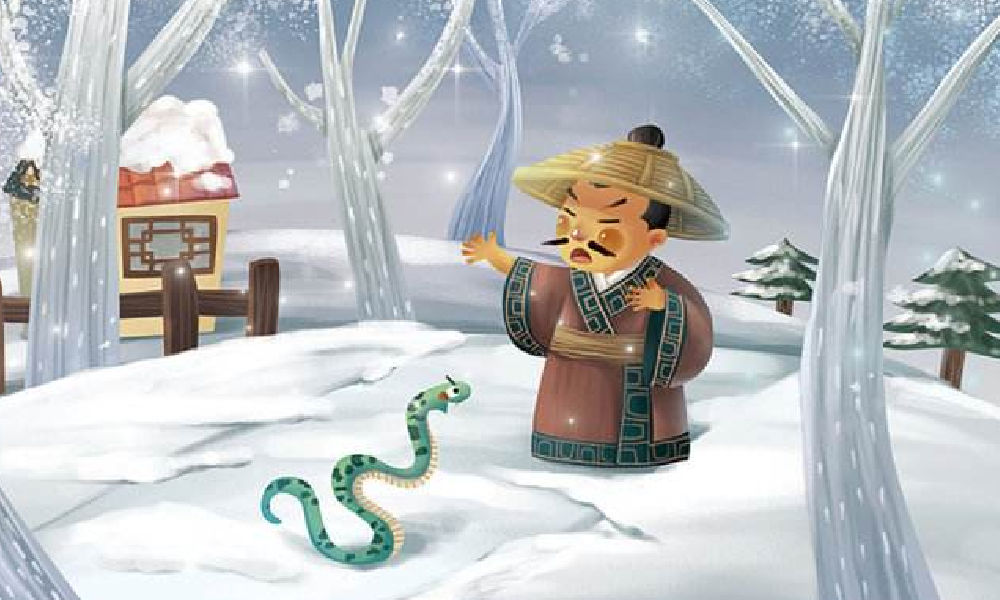China Society
The Trending Controversy Behind an Extraordinary Mount Everest Rescue
Chinese social media played a significant role in shaping the outcome of this incredible Mount Everest story.
Published
11 months agoon

The extraordinary nighttime rescue of a female Chinese mountain climber at the treacherous altitude of 8000 meters on Mount Everest was already a notable news story in its own right. However, when it was revealed that the woman declined to assume the full US$10,000 rescue fee, the story quickly spread across Chinese social media platforms, sparking fervent discussions on courage and (in)gratitude.
Recently, the news of two Chinese mountain climbers giving up on their dream to reach the summit of Mount Everest in order to rescue a female climber in distress has garnered widespread attention.
What initially seemed like a heartwarming tale of heroism quickly sparked intense debate when the 50-year-old Chinese woman refused to fully compensate her rescuers.
This incident has ignited discussions among netizens, covering financial concerns, moral responsibilities, and the notion that no good deed goes unpunished.
Sacrificing a Costly Dream
On May 18th in Nepal, at an altitude of 7,950 meters, four members of the Hunan Mountaineering Team (湖南登山队) embarked on their journey from the C4 camp on the southern slope of Mount Everest with the goal of reaching the summit.
At approximately 20:30, team leader Fan Jiangtao (范江涛) spotted a Chinese female climber huddled on the roadside at an altitude of 8,450 meters. The woman’s clothes were severely torn, one hand was exposed and blackened, and her face was coated with a thin layer of ice.
The woman seemingly undertook her climb without the aid of a Sherpa, who are typically experienced mountain guides and partners of climbers, belonging to the Nepalese ethnic group. They provide guidance and support to climbers during their ascent to different camps and, ultimately, the summit.
At an altitude of 8,000 meters on Mount Everest lies the treacherous “death zone,” where rescuing others can endanger the lives of the rescuers.
Despite initially intending to proceed with their ascent, Fan made the courageous decision to rescue the woman anyway. Along the way, he encountered another team member, Xie Ruxiang (谢如祥).
Luckily, Xie’s Sherpa guide was strong, and in order to convince the guide, Xie promised a reward of $10,000 if the Sherpa could safely bring the survivor back to the camp. Through the collective efforts of multiple individuals, including the determined Sherpa, they successfully brought Ms. Liu, who was in grave danger, back to the C4 camp.

A photo of the mountain climbers rescuing Ms. Liu, source: Beijing Evening News.
Consequently, the two rescuers had to relinquish their long-held dream to reach the summit of the Mount Everest during this significant year, which marks the 70th anniversary of the first human ascent. Not only was reaching the summit at this particular time of great importance to the mountain climbers, they also spent approximately 400,000 yuan (around US$57,000) in preparation and training fees.
Mountain of Wealth?
As the Mount Everest rescue story gained attention on Chinese social media after Hunan media outlets reported it, news emerged on June 3rd that the rescued woman allegedly intended to contribute only part of the rescue fee owed to the Sherpa who had aided in her rescue.
This information was later confirmed by one of the rescuers, Fan Jiangtao. Fan revealed that the woman had given a tip of merely $1,500 to the Sherpas, while other members of the team gave $1,800. Additionally, she expressed willingness to pay only $4,000 of the total $10,000 rescue fee.
“This angered me, and I informed her that if she maintained this attitude, I did not want any of that money, and she need not give it to me,” stated Fan. Consequently, Fan and the other rescuer, Xie, ended up paying the $10,000 fee themselves.

Fan Jiangtao (left) and Xie Ruxiang (right) after rescuing Liu, source: Beijing Evening News
As the hashtag “Woman Rescued on Everest Does not Want to Pay the Full Rescue Fee” (#珠峰被救女子不愿支付全部救援费用#) received over 370 million views on Weibo, the story ignited a fierce online debate.
While some netizens argued against criticizing Ms. Liu without knowing the full context of her personal financial circumstances, many others condemned her, stating that financial constraints should not serve as an excuse for individuals engaging in such mountain climbing endeavors, especially on Mount Everest.
Several Weibo users discussed how climbing Mount Everest would require a minimum budget of at least 500,000 yuan (approximately US$70,000) to cover expenses such as climbing permits, gear, guides, flights, not to mention the necessary training and preparation time.
Considering the widely acknowledged high costs associated with climbing Mount Everest, including rescue fees, many contend that Ms. Liu’s refusal extends beyond a mere financial issue. Additionally, most commenters suggest that Liu should not impose the burden of her rescue expenses on the rescuers.
One Weibo user expressed, “[If I were her], even if it meant going bankrupt, I would still borrow money to cover the training and preparation fees of those two rescuers [due to their failed summit attempt], let alone $10,000!”
The Farmer and the Snake
After the media exposed Ms. Liu’s refusal to pay the full amount, the two rescuers made an appeal to netizens, urging them not to engage in online harassment towards the rescued woman. They emphasized: “Rescuing people is our duty, and whether or not she expresses gratitude is her own choice. These are two completely separate matters.”
However, many argued that their critical remarks about Liu were not to be equated with ‘online harassment,’ asserting that individuals should face consequences for their actions.
Some Chinese social media users also suggested that individuals displaying ingratitude like this are unworthy of being rescued. They drew parallels to the well-known Chinese fable of “the farmer and the snake” (农夫与蛇, nóngfū yǔ shé), where a compassionate farmer saves a freezing snake during a cold winter, only to be bitten and killed by it later on. People argue that no good deed goes unpunished and also use the idiom “it’s hard to be a good person” (好人难做, hǎo rén nán zuò).

The farmer and the snake, image via Sohu.com
Liu was also labeled as a “white-eyed wolf” (白眼狼, bái yǎn láng), a term used to describe someone particularly heartless and cruel. One Weibo user commented, “We should collectively raise money to send her back to the mountain.”
Concerns were also raised that this incident might have implications for future rescues involving climbers in distress, as it could make other climbers more hesitant to come to the aid of those in need.
Various state media outlets, including Nanfang Daily (南方日报) and Hongxing News (红星新闻), urged the woman to take responsibility and acknowledge the heroic actions of the rescuers. By emphasizing the importance of not discouraging selfless acts like this, the story continued to generate online discussions, with netizens actively putting more pressure on the case.
More to the Story
On June 10, there was a somewhat unexpected follow-up to the story. As reported by NBD.com and other Chinese media outlets, Ms. Liu traveled to Changsha on June 7th to personally meet her rescuers and thank them for what they did for her.
In an in-depth article titled “They Gave up Reaching the Mount Everest Summit to Save Someone: Why Did the Rescued Person ‘Not Thank Them’ and ‘Not Pay Her Rescuers’?” (“他们放弃登顶珠峰救人:被救者为何“不感谢”“不付救援费?”), the Chinese magazine Sanlian Lifeweek (三联生活周刊) shared additional details about the entire incident, addressing some lingering questions.
According to the article, Ms. Liu arrived in Kathmandu on May 6th this year. Just 13 days later, she was found in a perilous situation, struggling for her life during her Mt Everest summit. This short time frame between her arrival and summit is highly unusual, as the usual preparation, climbing, and acclimatization period takes around 40 days.
Ms. Liu had registered with the Chengdu-based Kaitu Mountaineering company (成都凯途高山户外运动有限责任公司) to climb Mount Everest and paid them 400,000 yuan (US$56,110) for the expedition. The woman had allegedly spent all her savings to fulfill her dream of climbing Mount Everest.
As an experienced cross-country runner, the 50-year-old woman was in good physical condition and had undergone prior training for the expedition. Interestingly, she was also part of the same mountaineering team as her rescuers Fan and Xie.
Before commencing her journey, Ms. Liu discussed her climbing plans with the team leader of the company. Despite informing them that she needed to complete the summit and descent within just 20 days because her employer at a state-owned company would not allow a longer abscence, she was assured it was feasible. Normally, an Everest expedition takes about two months.
Although Ms. Liu embarked on the mountain separately from the other team members from Hunan, she had a Sherpa accompanying her. However, due to unfortunate circumstances and miscommunication, she found herself stranded and exhausted at an altitude of approximately 8000 meters, with limited oxygen, before being discovered by Fan Jiangtao at 20:30 on May 18th.

The difficult rescue of Liu took place after dark, image via Sohu.com.
Liu’s Sherpa had apparently signalled the need to return to the C4 camp for boiled water, and Liu couldn’t communicate her physical exhaustion and desire for him to stay. She then found that she was unable to detach herself from the rope due to the locking mechanism of the carabiner getting stuck, rendering her immobile.
Fan and later Xie never expected to find their team member on the mountain, assuming she had withdrawn from the expedition long ago upon learning that her job wouldn’t allow her to be away for 40 days. Without Fan and Xie, Liu’s life would have been lost on the mountain.
The Sanlian Lifeweek article doesn’t feature an interview with Liu herself but emphasizes that she is not a wealthy person and works an office job. It also highlights her introverted nature, which might have contributed to the perception of her being ungrateful.
During her visit to Changsha on June 7th, Liu finally had dinner with Fan Jiangtao, Xie Ruxiang, and several other team members to address mixed emotions and misunderstandings after her rescue. Allegedly, she also brought US$10,000 and an additional 20,000 yuan ($2800) to give to Fan and Xie, although they declined the offer.
Meanwhile, the Chengdu-based Kaitu Mountaineering company has now stepped forward and declared their commitment to bearing the financial burden of Liu’s rescue. They acknowledge the role they played, along with their Sherpa, in contributing to Liu’s predicament.
In a statement released on June 10, the company expressed gratitude towards the rescue team and announced that they had reached an agreement with the rescuers, the Sherpa rescue team, and Ms. Liu regarding the coverage of expenses (#珠峰被救女子所雇登山公司发文#).
Despite understanding the complete story, many netizens still express their inability to comprehend why Liu didn’t come forward earlier to cover the entire amount.
Others also think that being an introverted person has nothing to do with not being able to properly express gratitude for someone saving your life.
And then there are also those who are happy with the current outcome and the role played by social media in pressuring the responsible parties to provide financial compensation: “Without the internet, this never would have happened.”
By Zilan Qian and Manya Koetse
Get the story behind the hashtag. Subscribe to What’s on Weibo here to receive our newsletter and get access to our latest articles:
Spotted a mistake or want to add something? Please let us know in comments below or email us. First-time commenters, please be patient – we will have to manually approve your comment before it appears.
©2023 Whatsonweibo. All rights reserved. Do not reproduce our content without permission – you can contact us at info@whatsonweibo.com.
Stories that are authored by the What's on Weibo Team are the stories that multiple authors contributed to. Please check the names at the end of the articles to see who the authors are.

Also Read
China Insight
The Tragic Story of “Fat Cat”: How a Chinese Gamer’s Suicide Went Viral
The story of ‘Fat Cat’ has become a hot topic in China, sparking widespread sympathy and discussions online.
Published
1 day agoon
May 9, 2024
The tragic story behind the recent suicide of a 21-year-old Chinese gamer nicknamed ‘Fat Cat’ has become a major topic of discussion on Chinese social media, touching upon broader societal issues from unfair gender dynamics to businesses taking advantage of grieving internet users.
The story of a 21-year-old Chinese gamer from Hunan who committed suicide has gone completely viral on Weibo and beyond this week, generating many discussions.
In late April of this year, the young man nicknamed ‘Fat Cat’ (胖猫 Pàng Māo, literally fat or chubby cat), tragically ended his life by jumping into the river near the Chongqing Yangtze River Bridge (重庆长江大桥) following a breakup with his girlfriend. By now, the incident has come to be known as the “Fat Cat Jumping Into the River Incident” (胖猫跳江事件).
News of his suicide soon made its rounds on the internet, and some bloggers started looking into what was behind the story. The man’s sister also spoke out through online channels, and numerous chat records between the young man and his girlfriend emerged online.
One aspect of his story that gained traction in early May is the revelation that the man had invested all his resources into the relationship. Allegedly, he made significant financial sacrifices, giving his girlfriend over 510,000 RMB (approximately 71,000 USD) throughout their relationship, in a time frame of two years.
When his girlfriend ended the relationship, despite all of his efforts, he was devastated and took his own life.
The story was picked up by various Chinese media outlets, and prominent social and political commentator Hu Xijin also wrote a post about Fat Cat, stating the sad story had made him tear up.
As the news spread, it sparked a multitude of hashtags on Weibo, with thousands of netizens pouring out their thoughts and emotions in response to the story.
Playing Games for Love
The main part of this story that is triggering online discussions is how ‘Fat Cat,’ a young man who possessed virtually nothing, managed to provide his girlfriend, who was six years older, with such a significant amount of money – and why he was willing to sacrifice so much in order to do so.
The young man reportedly was able to make money by playing video games, specifically by being a so-called ‘booster’ by playing with others and helping them get to a higher level in multiplayer online battle games.
According to his sister, he started working as a ‘professional’ video gamer as a means of generating money to satisfy his girlfriend, who allegedly always demanded more.
He registered a total of 36 accounts to receive orders to play online games, making 20 yuan per game (about $2.80). Because this consumed all of his time, he barely went out anymore and his social life was dead.
In order to save more money, he tried to keep his own expenses as low as possible, and would only get takeout food for himself for no more than 10 yuan ($1,4). His online avatar was an image of a cat saying “I don’t want to eat vegetables, I want to eat McDonald’s.”

The woman in question who he made so many sacrifices for is named Tan Zhu (谭竹), and she soon became the topic of public scrutiny. In one screenshot of a chat conversation between Tan and her boyfriend that leaked online, she claimed she needed money for various things. The two had agreed to get married later in this year.
Despite of this, she still broke up with him, driving him to jump off the bridge after transferring his remaining 66,000 RMB (9135 USD) to Tan Zhu.
As the story fermented online, Tan Zhu also shared her side of the story. She claimed that she had met ‘Fat Cat’ over two years ago through online gaming and had started a long distance relationship with him. They had actually only met up twice before he moved to Chongqing. She emphasized that financial gain was never a motivating factor in their relationship.
Tan additionally asserted that she had previously repaid 130,000 RMB (18,000 USD) to him and that they had reached a settlement agreement shortly before his tragic death.
Ordering Take-Out to Mourn Fat Cat
– “I hope you rest in peace.”
– “Little fat cat, I hope you’ll be less foolish in your next life.”
– “In your next life, love yourself first.”
These are just a few of the messages left by netizens on notes attached to takeout food deliveries near the Chongqing Yangtze River Bridge.
As Fat Cat’s story stirred up significant online discussion, with many expressing sympathy for the young man who rarely indulged in spending on food and drinks, some internet users took the step of ordering McDonalds and other food delivery services to the bridge, where he tragically jumped from, in his honor.
This soon snowballed into more people ordering food and drinks to the bridge, resulting in a constant flow of delivery staff and a pile-up of take-out bags.

Delivery food on the bridge, photo via Weibo.
However, as the food delivery efforts picked up pace, it came to light that some of the deliveries ordered and paid for were either empty or contained something different; certain restaurants, aware of the collective effort to honor the young man, deliberately left the food boxes empty or substituted sodas or tea with tap water.

At least five restaurants were caught not delivering the actual orders. Chinese bubble tea shop ChaPanda was exposed for substituting water for milk tea in their cups. On May 3rd, ChaPanda responded that they had fired the responsible employee.
Another store, the Zhu Xiaoxiao Luosifen (朱小小螺蛳粉), responded on that they had temporarily closed the shop in question to deal with the issue. Chinese fast food chain NewYobo (牛约堡) also acknowledged that at least twenty orders they received were incomplete.
Fast food company Wallace (华莱士) responded to the controversy by stating they had dismissed the employees involved. Mixue Ice Cream & Tea (蜜雪冰城) issued an apology and temporarily closed one of their stores implicated in delivering empty orders.
In the midst of all the controversy, Fat Cat’s sister asked internet users to refrain from ordering take-out food as a means of mourning and honoring her brother.
Nevertheless, take-out food and flowers continued to accumulate near the bridge, prompting local authorities to think of ways of how to deal with this unique method of honoring the deceased gamer.
Gamer Boy Meets Girl
On Chinese social media, this story has also become a topic of debate in the context of gender dynamics and social inequality.
There are some male bloggers who are angry with Tan Zhu, suggesting her behaviour is an example of everything that’s supposedly “wrong” with Chinese women in this day and age.
Others place blame on Fat Cat for believing that he could buy love and maintain a relationship through financial means. This irked some feminist bloggers, who see it as a chauvinistic attitude towards women.
A main, recurring idea in these discussions is that young Chinese men such as Fat Cat, who are at the low end of the social ladder, are actually particularly vulnerable in a fiercely competitive society. Here, a gender imbalance and surplus of unmarried men make it easier for women to potentially exploit those desperate for companionship.
The story of Fat Cat brings back memories of ‘Mo Cha Official,’ a not-so-famous blogger who gained posthumous fame in 2021 when details of his unhappy life surfaced online.
Likewise, the tragic tale of WePhone founder Su Xiangmao (苏享茂) resurfaces. In 2017, the 37-year-old IT entrepreneur from Beijing took his own life, leaving behind a note alleging blackmail by his 29-year-old ex-wife, who demanded 10 million RMB (±1.5 million USD) (read story).
Another aspect of this viral story that is mentioned by netizens is how it gained so much attention during the Chinese May holidays, coinciding with the tragic news of the southern China highway collapse in Guangdong. That major incident resulted in the deaths of at least 48 people, and triggered questions over road safety and flawed construction designs. Some speculate that the prominence given to the Fat Cat story on trending topic lists may have been a deliberate attempt to divert attention away from this incident.
‘Fat Cat’ was cremated. His family stated their intention to take necessary legal steps to recover the money from his former girlfriend, but Tan Zhu reportedly already reached an agreement with the father and settled the case. Nevertheless, the case continues to generate discussions online, with some people wondering: “Is it over yet? Can we talk about something different now?”

Fat Cat images projected in Times Square
However, given that images of the ‘Fat Cat’ avatar have even appeared in Times Square in New York by now (Chinese internet users projected it on one of the big LED screens), it’s likely that this story will be remembered and talked about for some time to come.
By Manya Koetse
– With contributions by Miranda Barnes and Ruixin Zhang
Independently reporting China trends for over a decade. Like what we do? Support us and get the story behind the hashtag by subscribing:
Spotted a mistake or want to add something? Please let us know in comments below or email us. First-time commenters, please be patient – we will have to manually approve your comment before it appears.
©2024 Whatsonweibo. All rights reserved. Do not reproduce our content without permission – you can contact us at info@whatsonweibo.com.
China Brands, Marketing & Consumers
A Brew of Controversy: Lu Xun and LELECHA’s ‘Smoky’ Oolong Tea
Chinese tea brand LELECHA faced backlash for using the iconic literary figure Lu Xun to promote their “Smoky Oolong” milk tea, sparking controversy over the exploitation of his legacy.
Published
1 week agoon
May 3, 2024
It seemed like such a good idea. For this year’s World Book Day, Chinese tea brand LELECHA (乐乐茶) put a spotlight on Lu Xun (鲁迅, 1881-1936), one of the most celebrated Chinese authors the 20th century and turned him into the the ‘brand ambassador’ of their special new “Smoky Oolong” (烟腔乌龙) milk tea.
LELECHA is a Chinese chain specializing in new-style tea beverages, including bubble tea and fruit tea. It debuted in Shanghai in 2016, and since then, it has expanded rapidly, opening dozens of new stores not only in Shanghai but also in other major cities across China.
Starting on April 23, not only did the LELECHA ‘Smoky Oolong” paper cups feature Lu Xun’s portrait, but also other promotional materials by LELECHA, such as menus and paper bags, accompanied by the slogan: “Old Smoky Oolong, New Youth” (“老烟腔,新青年”). The marketing campaign was a joint collaboration between LELECHA and publishing house Yilin Press.

Lu Xun featured on LELECHA products, image via Netease.
The slogan “Old Smoky Oolong, New Youth” is a play on the Chinese magazine ‘New Youth’ or ‘La Jeunesse’ (新青年), the influential literary magazine in which Lu’s famous short story, “Diary of a Madman,” was published in 1918.
The design of the tea featuring Lu Xun’s image, its colors, and painting style also pay homage to the era in which Lu Xun rose to prominence.
Lu Xun (pen name of Zhou Shuren) was a leading figure within China’s May Fourth Movement. The May Fourth Movement (1915-24) is also referred to as the Chinese Enlightenment or the Chinese Renaissance. It was the cultural revolution brought about by the political demonstrations on the fourth of May 1919 when citizens and students in Beijing paraded the streets to protest decisions made at the post-World War I Versailles Conference and called for the destruction of traditional culture[1].
In this historical context, Lu Xun emerged as a significant cultural figure, renowned for his critical and enlightened perspectives on Chinese society.
To this day, Lu Xun remains a highly respected figure. In the post-Mao era, some critics felt that Lu Xun was actually revered a bit too much, and called for efforts to ‘demystify’ him. In 1979, for example, writer Mao Dun called for a halt to the movement to turn Lu Xun into “a god-like figure”[2].
Perhaps LELECHA’s marketing team figured they could not go wrong by creating a milk tea product around China’s beloved Lu Xun. But for various reasons, the marketing campaign backfired, landing LELECHA in hot water. The topic went trending on Chinese social media, where many criticized the tea company.
Commodification of ‘Marxist’ Lu Xun
The first issue with LELECHA’s Lu Xun campaign is a legal one. It seems the tea chain used Lu Xun’s portrait without permission. Zhou Lingfei, Lu Xun’s great-grandson and president of the Lu Xun Cultural Foundation, quickly demanded an end to the unauthorized use of Lu Xun’s image on tea cups and other merchandise. He even hired a law firm to take legal action against the campaign.
Others noted that the image of Lu Xun that was used by LELECHA resembled a famous painting of Lu Xun by Yang Zhiguang (杨之光), potentially also infringing on Yang’s copyright.
But there are more reasons why people online are upset about the Lu Xun x LELECHA marketing campaign. One is how the use of the word “smoky” is seen as disrespectful towards Lu Xun. Lu Xun was known for his heavy smoking, which ultimately contributed to his early death.
It’s also ironic that Lu Xun, widely seen as a Marxist, is being used as a ‘brand ambassador’ for a commercial tea brand. This exploits Lu Xun’s image for profit, turning his legacy into a commodity with the ‘smoky oolong’ tea and related merchandise.
“Such blatant commercialization of Lu Xun, is there no bottom limit anymore?”, one Weibo user wrote. Another person commented: “If Lu Xun were still alive and knew he had become a tool for capitalists to make money, he’d probably scold you in an article. ”
On April 29, LELECHA finally issued an apology to Lu Xun’s relatives and the Lu Xun Cultural Foundation for neglecting the legal aspects of their marketing campaign. They claimed it was meant to promote reading among China’s youth. All Lu Xun materials have now been removed from LELECHA’s stores.

Statement by LELECHA.
On Chinese social media, where the hot tea became a hot potato, opinions on the issue are divided. While many netizens think it is unacceptable to infringe on Lu Xun’s portrait rights like that, there are others who appreciate the merchandise.
The LELECHA controversy is similar to another issue that went trending in late 2023, when the well-known Chinese tea chain HeyTea (喜茶) collaborated with the Jingdezhen Ceramics Museum to release a special ‘Buddha’s Happiness’ (佛喜) latte tea series adorned with Buddha images on the cups, along with other merchandise such as stickers and magnets. The series featured three customized “Buddha’s Happiness” cups modeled on the “Speechless Bodhisattva” (无语菩萨), which soon became popular among netizens.

The HeyTea Buddha latte series, including merchandise, was pulled from shelves just three days after its launch.
However, the ‘Buddha’s Happiness’ success came to an abrupt halt when the Ethnic and Religious Affairs Bureau of Shenzhen intervened, citing regulations that prohibit commercial promotion of religion. HeyTea wasted no time challenging the objections made by the Bureau and promptly removed the tea series and all related merchandise from its stores, just three days after its initial launch.
Following the Happy Buddha and Lu Xun milk tea controversies, Chinese tea brands are bound to be more careful in the future when it comes to their collaborative marketing campaigns and whether or not they’re crossing any boundaries.
Some people couldn’t care less if they don’t launch another campaign at all. One Weibo user wrote: “Every day there’s a new collaboration here, another one there, but I’d just prefer a simple cup of tea.”
By Manya Koetse
[1]Schoppa, Keith. 2000. The Columbia Guide to Modern Chinese History. New York: Columbia UP, 159.
[2]Zhong, Xueping. 2010. “Who Is Afraid Of Lu Xun? The Politics Of ‘Debates About Lu Xun’ (鲁迅论争lu Xun Lun Zheng) And The Question Of His Legacy In Post-Revolution China.” In Culture and Social Transformations in Reform Era China, 257–284, 262.
Independently reporting China trends for over a decade. Like what we do? Support us and get the story behind the hashtag by subscribing:
Spotted a mistake or want to add something? Please let us know in comments below or email us. First-time commenters, please be patient – we will have to manually approve your comment before it appears.
©2024 Whatsonweibo. All rights reserved. Do not reproduce our content without permission – you can contact us at info@whatsonweibo.com.
Subscribe

The Tragic Story of “Fat Cat”: How a Chinese Gamer’s Suicide Went Viral

A Brew of Controversy: Lu Xun and LELECHA’s ‘Smoky’ Oolong Tea

Weibo Watch: The Battle for the Bottom Bed

Zara Dress Goes Viral in China for Resemblance to Haidilao Apron

“Old Bull Eating Young Grass”: 86-Year-Old Chinese Painter Fan Zeng Marries 36-Year-Old Xu Meng

The Tragic Story of “Fat Cat”: How a Chinese Gamer’s Suicide Went Viral

The ‘Two Sessions’ Suggestions: Six Proposals Raising Online Discussions

Top 9 Chinese Movies to Watch This Spring Festival Holiday

“Old Bull Eating Young Grass”: 86-Year-Old Chinese Painter Fan Zeng Marries 36-Year-Old Xu Meng

Party Slogan, Weibo Hashtag: “The Next China Will Still Be China”

From Pitch to Politics: About the Messy Messi Affair in Hong Kong (Updated)

The Chinese Viral TikTok Song Explained (No, It’s Not About Samsung)

More than Malatang: Tianshui’s Recipe for Success

Chengdu Disney: The Quirkiest Hotspot in China

Looking Back on the 2024 CMG Spring Festival Gala: Highs, Lows, and Noteworthy Moments
Get in touch
Would you like to become a contributor, or do you have any tips or suggestions? Get in touch here!
Popular Reads
-

 China Insight1 day ago
China Insight1 day agoThe Tragic Story of “Fat Cat”: How a Chinese Gamer’s Suicide Went Viral
-

 China Insight2 months ago
China Insight2 months agoThe ‘Two Sessions’ Suggestions: Six Proposals Raising Online Discussions
-

 China Arts & Entertainment3 months ago
China Arts & Entertainment3 months agoTop 9 Chinese Movies to Watch This Spring Festival Holiday
-

 China Arts & Entertainment3 weeks ago
China Arts & Entertainment3 weeks ago“Old Bull Eating Young Grass”: 86-Year-Old Chinese Painter Fan Zeng Marries 36-Year-Old Xu Meng



